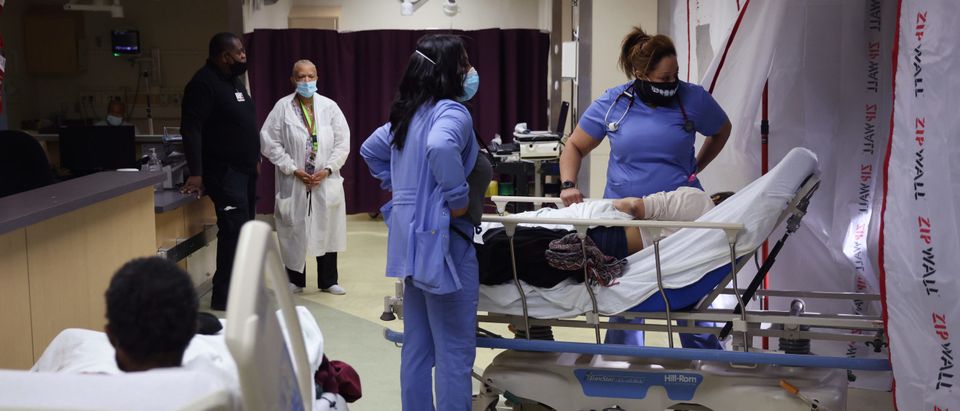The number of Americans visiting emergency rooms for suicide attempts, overdoses, and domestic abuse issues has increased during the COVID-19 pandemic, a new study released Wednesday found.
A study of nearly 190 million emergency department (ED) visits found that visit rates for mental health crises, suicide attempts, drug and opioid overdoses, domestic violence, and child abuse or neglect were higher in mid-March through Oct. 2020 than during the same period in 2019. The paper published by the Journal of the American Medical Association suggests that priorities for ED care shifted due to the impact of the coronavirus pandemic on public health.
The study states that the COVID-19 pandemic, the associated lockdown measures, and the social and economic impacts that followed may have caused an increase in mental health problems, suicidal behavior, and drug abuse. While the total number of ED visits went down when lockdown measures started to be implemented in Mar. 2020, the proportion of visits that were for the aforementioned problems increased by a statistically significant amount.
From the article:
A CDC survey “shows a significant number of younger adults, essential workers and minorities have contemplated suicide during lockdowns. Depression rates tripled amid COVID-19 lockdowns.”— Glenn Jacobs (@GlennJacobsTN) January 30, 2021
Previous research has supported the finding that mental health has worsened during the pandemic. Since COVID-19 began spreading throughout the U.S., more Americans have experienced anxiety and depression linked to isolation and inactivity. (RELATED: What Is A ‘Suicide Cluster,’ And Why Has COVID Increased Them?)
The problem has been especially bad in children and young adults, according to Centers for Disease Control and Prevention (CDC) data. There has been a trend of increased suicide attempts and other mental health crises for children unable to attend in-person school during the pandemic, in particular. (RELATED: ‘My Son Is About To Die’: Parents Share Son’s Suicide Attempt, Mental Health Struggles)
Government policies meant to curtail the COVID-19 pandemic have resulted in unintended consequences that threaten lives—including, tragically, the lives of young people. https://t.co/SrDduVskCV
— FEE (@feeonline) February 3, 2021
Some recent reports have also indicated that a portion of recovered COVID-19 patients have developed new psychological ailments that were not previously present.












